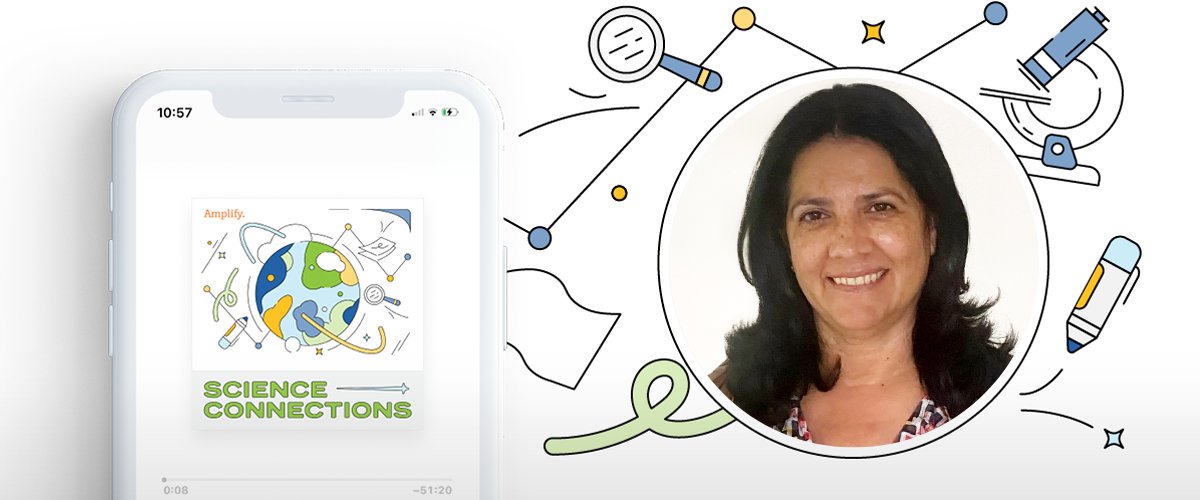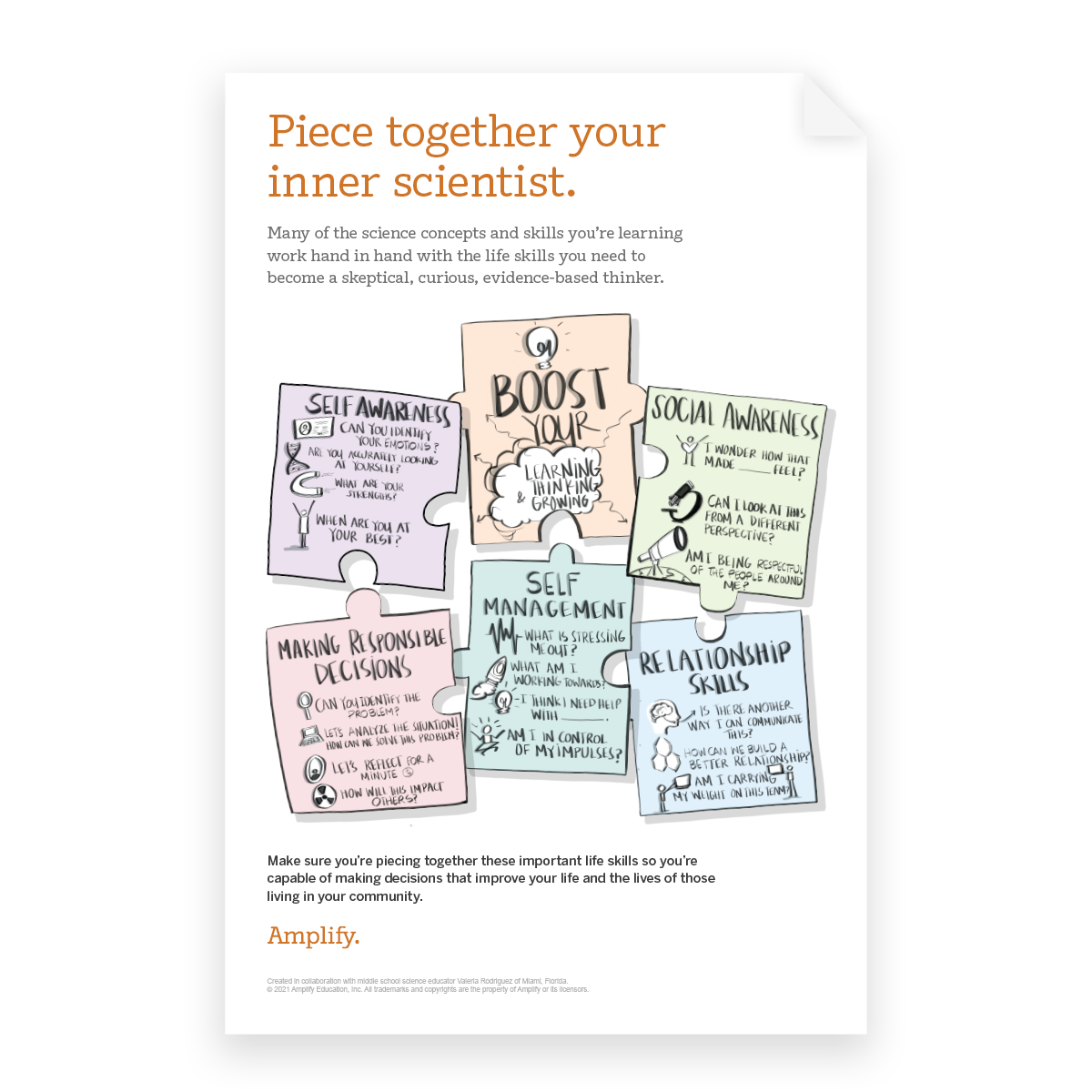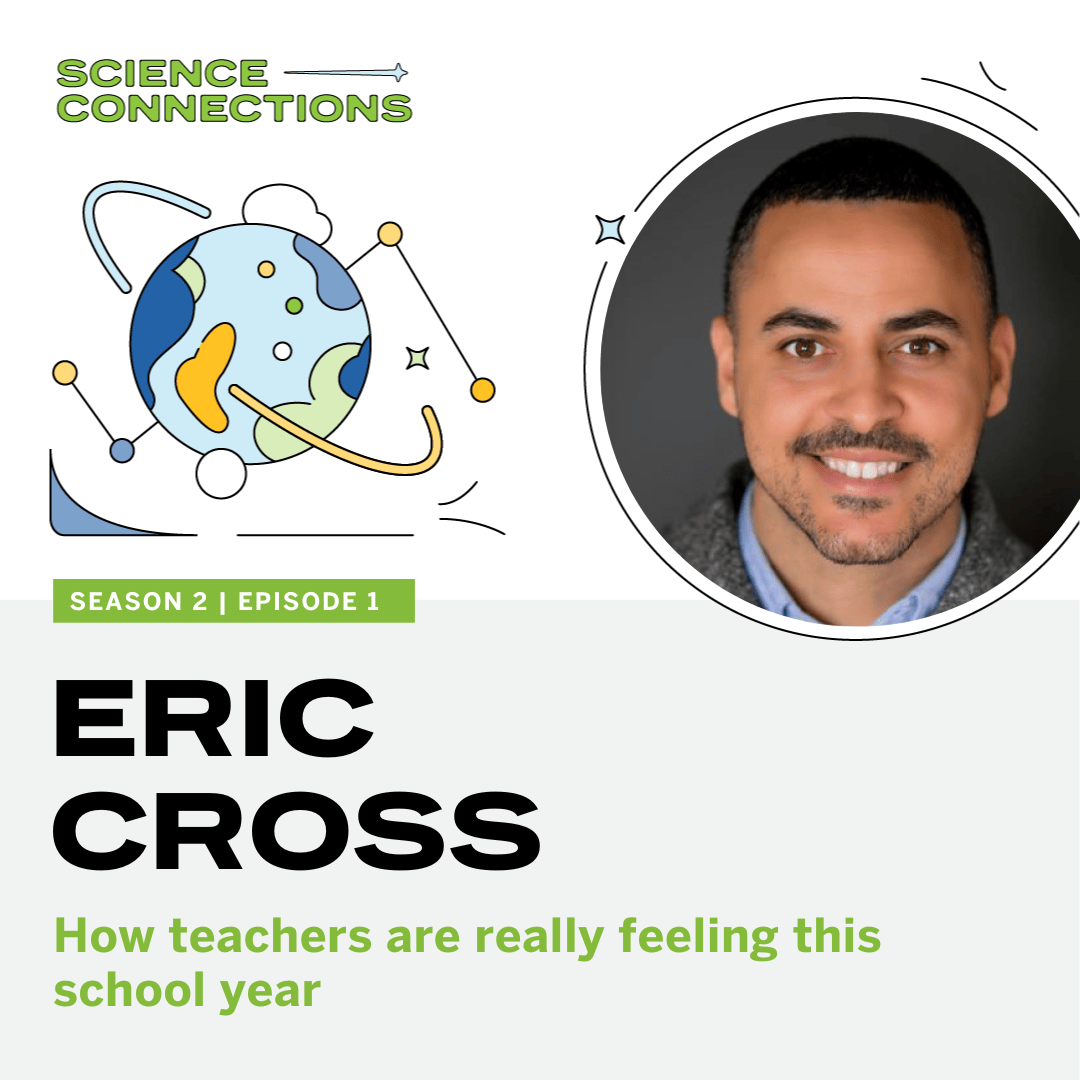
The landscape of education is constantly shifting. ThatŌĆÖs always been true, because the world is constantly changing. But at no time in recent memory has the landscape of education been forced to change in as many ways as it has over the past few years.
How can teachers navigate the seismic changes in the education system in their day-to-day lives?
In this recent episode of Science Connections: The Podcast, host Eric Cross talks about managing educational change with veteran educator and former Miami-Dade County Public Schools (M-DCPS) Middle School Science Teacher of the Year Marilyn Dieppa.
Below, weŌĆÖve outlined four tips for weathering shifts. The bottom line? ItŌĆÖs important for teachers to be able to change with the times, while remaining a steady, solid presence for students.
1. Embrace changeŌĆöitŌĆÖs good for kids, too.
ŌĆ£I always change my labs. I donŌĆÖt like to do the same thing over and over again,ŌĆØ says Dieppa. And when she tries something new, she tells her ╣·▓·┬ķČ╣ŠńsheŌĆÖs experimenting. (After all, itŌĆÖs science!)
ŌĆ£TheyŌĆÖre afraid of trying something new and failing,ŌĆØ Dieppa saysŌĆöso she tries to model taking on the unknown, learning, and adjusting as needed. This is part of cultivating a growth mindset for kids. ŌĆ£ItŌĆÖs for them not to be fearful. That gives kids a foundation they need.ŌĆØ
2. Have an open-door policy.
The pandemic has exacerbated challenges in kidsŌĆÖ lives that can make it tough for them to learn. Some even say weŌĆÖre in a youth mental health crisis. Now more than ever, itŌĆÖs important that ŌĆ£you become more than just a science teacher,ŌĆØ says Cross. ŌĆ£YouŌĆÖre a mentor. YouŌĆÖre an encourager. Sometimes youŌĆÖre a counselor.ŌĆØ
ItŌĆÖs impossible to be everything to every student, but itŌĆÖs important to let them know you see them.
ŌĆ£I always say, IŌĆÖm not there to really be your friend, but IŌĆÖm there to help you,ŌĆÖŌĆØ says Dieppa. ŌĆ£And you gotta tell ŌĆÖem, you know, ‘if you need to talk, come talk to me’. Because so much of what weŌĆÖre doing is like life coaching in addition, and that connects to their success in the classroom.ŌĆØ
3. Measure wins in lots of ways.
What keeps Dieppa going? ŌĆ£Whether [students] have struggled all year and theyŌĆÖve had that one piece of success, or they come back and tell you they didnŌĆÖt realize what they got out of middle school science until they got to high school, those are my moments of success.ŌĆØ
4. RememberŌĆöyouŌĆÖre still learning, too.
Yes, youŌĆÖre the teacher, but ŌĆ£you donŌĆÖt have to be the expert in everything,ŌĆØ says Cross. ŌĆ£Teachers tend to be more risk-taking and innovative when theyŌĆÖre willing to say, ŌĆśI donŌĆÖt have to know everything in order to do something.ŌĆÖŌĆØ
Whenever it feels like you canŌĆÖt do something or donŌĆÖt know something, remember: You canŌĆÖt do it yet. You donŌĆÖt know it yet. Growth mindset phrases for ╣·▓·┬ķČ╣Šńapply to your growth, too.
Listen to the whole podcast episode here┬Āand subscribe to Science Connections: The Podcast here.╠²
About AmplifyŌĆÖs Science Connections: The Podcast
Science is changing before our eyes, now more than ever. So how do we help kids figure that out? How are we preparing ╣·▓·┬ķČ╣Šńto be the next generation of 21st-century scientists?
Join host Eric Cross as he sits down with educators, scientists, and knowledge experts to discuss how we can best support ╣·▓·┬ķČ╣Šńin science classrooms. Listen to hear how you can inspire kids across the country to love learning science, and bring that magic into your classroom for your students.


